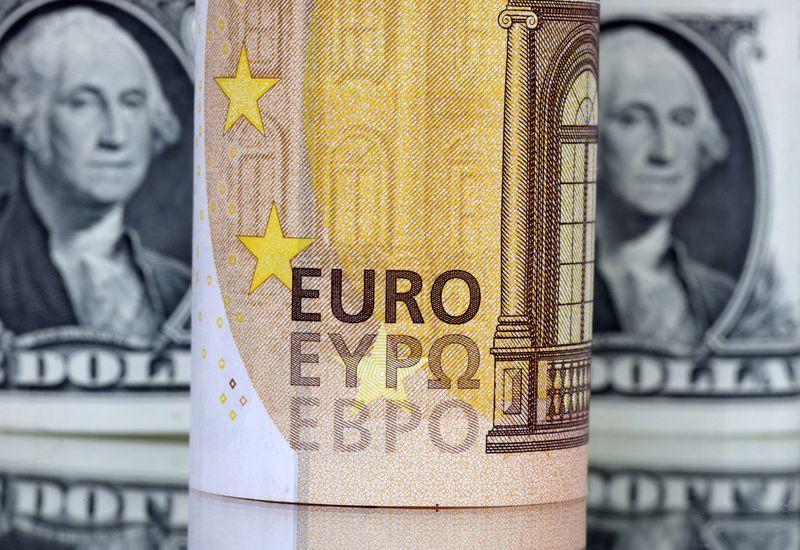
At 04:55 ET (08:55 GMT), the Dollar Index, which tracks the greenback against a basket of six other currencies, traded 0.1% lower at 105.395, having climbed to 106.00 on Thursday.
Data released on Thursday showed that U.S. gross domestic product grew at a 1.6% annualized rate in the January-March period, much slower than the 2.4% rate expected.
That said, the report also showed that underlying inflation as measured by the core personal consumption expenditures price index rose 3.7% in the first quarter, beating forecasts for a 3.4% rise.
Fed officials have made it pretty clear over the last few weeks that they remained concerned about inflation, prompting the market to rein in expectations of an early interest rate cut.
Attention now turns to the release later in the session of the PCE price index data for March, widely seen as the Fed’s most important gauge of inflation.
“The main drivers of FX all point to a stronger dollar: higher Treasury yields, widening swap differentials in favour of the dollar, and falling equities,” said analysts at ING, in a note.
“There is a good chance that markets will scale back US rate cuts further if core PCE comes in at 0.4% month-on-month today.”
In Europe, EUR/USD rose 0.2% to 1.0746, benefiting from the dollar’s weaker tone.
Eurozone consumers saw inflation in the next 12 months at 3.0%, just below the 3.1% expected a month earlier, according to the ECB’s Consumer Expectations Survey.
This was the lowest reading since December 2021.
However, inflation expectations for three years ahead held steady for a fourth consecutive month at 2.5%, above the European Central Bank’s 2.0% target.
The ECB is planning to cut interest rates in June but the outlook further out remains clouded by rising energy costs, stubbornly high services inflation and continued geopolitical tensions.
GBP/USD rose 0.2% to 1.2532, benefiting from the recent dollar weakness.
“The BoE policy meeting on 9 May is obviously the next big event for the pound, but data may still prove more important given a divided MPC,” said ING.
In Asia, USD/JPY rose 0.6% to 156.58, rising past the 156 level to new 34-year highs after the Bank of Japan left interest rates unchanged after a historic hike in March.
The central bank also forecast higher inflation in the coming years, but also forecast weaker economic growth, raising doubts over just how much capacity it would have to keep raising interest rates.
Softer-than-expected consumer price index inflation data from Tokyo, released earlier on Friday, further sparked doubts over a hawkish BOJ.
USD/CNY edged 0.1% higher to 7.2466, remaining close to five-month highs.
AUD/USD rose 0.5% to 0.6552, supported by strong Australian producer price index inflation data, which, coupled with higher CPI reading earlier this week, sparked bets on higher-for-longer rates in the country.
To read the full article, Click Here
